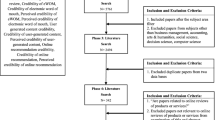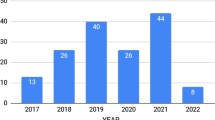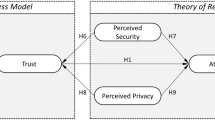Abstract
Trust and reputation models are used as mechanisms for selecting services. One of the benefits of service-oriented architecture is enabling the composition of services and composing value-added services, which are called composite services. A challenging problem of trust management in composite services is how to propagate the consumers’ perceptions of composite services to their component services. Due to the opaque nature of service composition, the consumer does not know the underlying components of a composite service. Therefore, a consumer can only provide a single feedback rating for the composite service. In this paper, we propose a fair approach for propagating the user’s rating to component services by considering both the past behavior trend of each component service and the internal ratings among component services. The proposed approach is capable of propagating trust in both horizontal and vertical composition, without the need of monitoring component services.











Similar content being viewed by others
References
Malik Z, Bouguettaya A (2009) RATEWeb: reputation assessment for trust establishment among web services. VLDB J 18(4):885–911
Li J, Zheng X, Chen D, Song WW (2012) Trust based service selection in service oriented environment. Int J Web Serv Res 9(3): 23–42
Yao W, Vassileva J (2007) A review on trust and reputation for web service selection. In: Proceedings of the 27th international conference on distributed computing systems workshops, pp 25–32
Nepal S, Malik Z, Bouguettaya A (2011) Reputation management for composite services in service-oriented systems. Int J Web Serv Res 8(2):29–52
Shiting W, Qing L, Lihua Y, An L, Chaogang T (2011) Reputation distribution based on structure-related importance in services composition. In: Proceedings of the 8th international conference on e-business engineering (ICEBE), pp 52–59
Medjahed B, Bouguettaya A (2005) A multi-level composability model for semantic web services. IEEE Trans Knowl Data Eng 17(7):954–968
Sabater J, Sierra C (2002) Reputation and social network analysis in multi-agent systems. In: Proceedings of the 1st international conference autonomous agents and multiagent systems: part 1, pp 475–482
Li X, Ling L (2004) PeerTrust: supporting reputation-based trust for peer-to-peer electronic communities. IEEE Trans Knowl Data Eng 16(7):843–857
Kamvar SD, Schlosser MT, Garcia-Molina H (2003) The Eigen trust algorithm for reputation management in P2P networks. In: Proceedings of the 21st international conference, World Wide Web, pp 640–651
Page L, Brin S, Motwani R, Winograd T (1998) The PageRank citation ranking: bringing order to the web. Technical Report, Stanford Digital Library Technologies Project
Koutrouli E, Tsalgatidou A (2012) Taxonomy of attacks and defense mechanisms in P2P reputation systems: lessons for reputation system designers. Comput Sci Rev 6(2–3):47–70
Malik Z, Bouguettaya A (2007) Evaluating rater credibility for reputation assessment of web services. In: Proceedings of the 8th international conference on web information, systems engineering, pp 38–49
Dewan P, Dasqupta P (2004) Pride: peer-to-peer reputation infrastructure for decentralized environments. In: Proceedings of the 13th international conference World Wide Web (Alternate Track Papers & Posters), pp 480–481
Nusrat S, Vassileva J (2013) Simulating a trust-based service recommender system for decentralised user modelling environment. Int J Trust Manag Comput Commun 1(2):121–139
Li L, Wang Y (2011) The study of trust vector based trust rating aggregation in service-oriented environments. World Wide Web J 15(5–6):547–579
Li L, Wang Y, Lim E-P (2009) Trust-oriented composite service selection and discovery. In: Proceedings of the international conference service-oriented, computing, pp 50–67
Yong W, Guiping D (2009) Trust-enhanced component service selection algorithm in service composition. In: Proceedings of the 8th international conference grid and cooperative, computing, pp 430–435
Malik Z, Akbar I, Bouguettaya A (2009) Web services reputation assessment using a hidden Markov model. Lecture Notes in Computer Science, vol 5900. pp 576–591
An L, Qing L, Liusheng H, Shiting W, Chaogang T, Mingjun X (2010) Reputation-driven recommendation of services with uncertain QoS. In: Proceedings of the 2010 IEEE Asia-Pacific services computing conference (APSCC), pp 115–122
Shiting W, Qing L, Lihua Y, An L, Chaogang T (2010) Towards fair reputation propagation from a composite service to its component services. In: Proceedings of the 7th international conference e-business engineering (ICEBE), pp 9–16
Lei L, Yan W (2009) Trust evaluation in composite services selection and discovery. In Proceedings of the 2009 IEEE Asia-Pacific services computing conference (APSCC), pp 482–485
Whitby A, Josang A, Indulska J (2005) Filtering out unfair ratings in Bayesian reputation systems. ICFAI J Manag Res 4(2):48–64
Author information
Authors and Affiliations
Corresponding author
Rights and permissions
About this article
Cite this article
Sadeghi, R., Abdollahi Azgomi, M. A method for fair propagation of user perceptions for trust management in composite services. SOCA 9, 157–176 (2015). https://doi.org/10.1007/s11761-014-0158-6
Received:
Revised:
Accepted:
Published:
Issue Date:
DOI: https://doi.org/10.1007/s11761-014-0158-6




